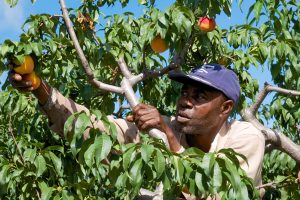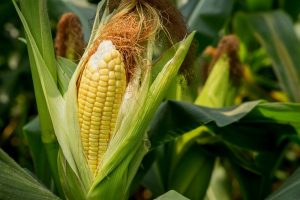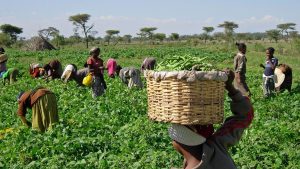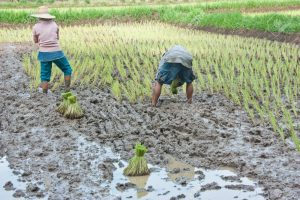The realities of the economic issues surrounding Covid-19 are that the global recession will be prolonged and any wrong policy will put the economy on life support. The irrefutable fact is that general economic output is low, real national income is falling, and thus the country as a whole will be worse off.
The basic problem to be tackled is how to manage the distribution of that fall, and in particular how to protect poorer groups. In plain words, ensuring the supply of essentials, especially food, should be a priority. For example, guaranteeing farmers higher prices well in advance should stimulate supply. If government policy favors this, farms’ output will be on the increase even if the pandemic persists.

Many questions have been raised since the coronavirus pandemic started having adverse effects on economies globally. What happens to businesses, sporting activities, education, the poor population and places of worship since countries declare partial or total lockdown to curb the spread of the virus? What also happens to the most essential thing to human existence, Food?
Realistically speaking, while the case for a reasonable degree of lockdown to combat COVID-19 in developing countries is strong, the case for a lockdown across Nigeria is not. The Lockdowns across many states in Nigeria pose new threats, and could even turn the pandemic response into a famine in some poor places. Recall that Nigeria has been defined as the poverty capital of the world.
The availability of food needed to pull through the period is beginning to worsen in many parts of Nigeria as farmers are not allowed access to their farms and even risk being arrested if they attempt to visit. This will gradually make it quite perilous, leading to unavailability of food and general farm produce.

Decreeing a lockdown to combat COVID-19 in Nigeria should be carefully examined as the Lockdowns pose new threats, and could even turn the pandemic response into famine in the country. Jokes apart, I believe famine is a looming threat. Both research and experience demonstrate how famines can result from this sort of institutional and market breakdowns implied by a strict lockdown. We saw this recently in the wake of the 2014 Ebola virus outbreak in Sierra Leone, where starvation soon emerged as a new threat.
The lockdown has affected access to inputs, most agro-shops have shut down and there are not enough fertilizers to supply. Extended lockdown of agro-shops will jeopardize food production as well as family incomes, which may result in severe shortage, hunger and national disaster in the coming months.
The maize association of Nigeria said maize farmers are not allowed into their farms due to the lockdown and unavailability of inputs. They also said if the Federal Government does not intervene in maize production across the country, it would be difficult to meet the 22 million metric tons target for 2020.

The president of the Association, Dr. Bello Abubakar, said some level of intervention by the government is needed in areas such as inputs subsidy and ease of movement of farmers to farms to meet the target for the year. Before the pandemic, a bag of maize was between 8,000 Naira to 11,000 Naira, now the price has fallen. This will also affect maize products such as corn oil, corn starch, maize flour, corn syrup, cornmeal, etc.
The spread of a disease like the coronavirus can traumatize already impoverished rural communities and small scale food producers who are battling with issues such as limited access to resources and poor nutrition. Farming activities have since been threatened by Boko Haram and the conflicts between farmers and herdsmen in Nigeria. Now the impact of the coronavirus may completely ruin the sector if wise decisions are not taken.

There have been underlying issues in the agricultural sector in Nigeria. The government has constantly failed to act on climate change, especially the yearly droughts in the North and flooding in the South. There is lack of access to adequate financing by farmers and banks are unwilling to lend to the sector.
The next few months falls under the rainy season, and rain is capable of spreading pathogens, pests and other diseases to plants, thereby affecting its yield or cause the entire field to be unusable. A good part of the month of March and April has been handed over to the virus and there is no guarantee that there would be no further extension of the lockdown.

The food supply chain will be strained in the coming weeks and perishable foods will suffer because it is planting season and farmers are forced to stay at home. For livestock farming, the animal feed cannot be accessed easily and there is diminished capacity of slaughterhouses due to labor shortage and logistical constraints.
Food security plays a major role in national development, and Nigeria is completely food unsecured, which explains why the number of hungry Nigerians keeps increasing. Since the lockdown, videos of food robbery and anarchy have emerged on the internet, most Nigerians do not feel safe this period and they have begun to chant the mantra “Hunger will kill Nigerians before coronavirus”.
On Friday, April 3, 2020, the Federal Ministry of Agriculture and Rural Development complied with President Muhammadu Buhari’s order to release 70,000 metric tons of grains and Garri to vulnerable Nigerians as lockdown measures to boost food security. Good response, but the impact may not be felt soon but maybe in months to come. Most of the released grains and foods eaten in 2020 were produced last year (2019), with farmers at home and no productions, what happens next year?
In response to the situation the country is facing, we must not put ourselves in a position where we create new problems. To ensure sustainability and food security after the health crisis is in our ability to continue producing food regardless of the situation.
It is very necessary that farmers and other important players in the value chain, such as agro-dealers, are exempted from the prolonged lockdown to ensure that food production across the country continues. Otherwise, Nigeria may suffer a more severe plague than the coronavirus.
